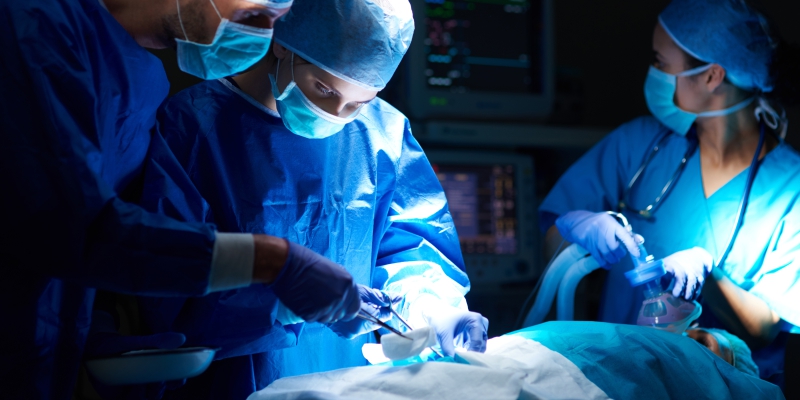
Laparoscopic Hysterectomy: Reasons, Risk & What to Expect 10 Must-Follow Precautions During IVF Pregnancy Journey

Author - Dr Preety Aggarwal,
MBBS, DGO, DNB,
Medical Director (Gurgaon)- Obstetrics and Gynaecology
Laparoscopic Hysterectomy: Reasons, Risk & What to Expect
Introduction:
Hysterectomy refers to a procedure that removes the uterus, ovaries, fallopian tubes, and cervix. The procedure can either be conducted via traditional surgery or by laparoscopy. The top maternity doctors in Gurgaon favour laparoscopy as it is a minimally invasive procedure as well as safe. Dr Preety Aggarwal, MBBS, DGO, DNB, Medical Director (Gurgaon)- Obstetrics and Gynaecology, recommends laparoscopy hysterectomy for faster recovery.
Laparoscopic Hysterectomy: Reasons, Risk and What to Expect
In simpler words, a hysterectomy is the surgical removal of the uterus. Depending on the patient’s medical condition, the surgery may involve removing surrounding organs and tissues including fallopian tubes and ovaries. Since the best obstetrician in Gurgaon removes the uterus, you will not be able to get pregnant after the procedure.
Why is a Hysterectomy Performed?
The top maternity doctors in Gurgaon may suggest a hysterectomy to treat:
Abnormal or heavy vaginal bleeding that is not being controlled by other treatments.
Severe pain during periods that are not being controlled by other treatments.
Uterine fibroids or noncancerous tumours.
Uncontrolled pelvic pain that is not being controlled by other treatments.
Uterine prolapse.
Cervical or uterine cancer.
What are the Different Types of Hysterectomy?
Depending on your medical condition, the best obstetrician in Gurgaon may suggest any of the below procedures:
1. Total hysterectomy: Removal of uterus and cervix.
2. Supracervical hysterectomy: Removal of just the upper part of the uterus.
3. Total hysterectomy with bilateral salpingo-oophorectomy: Removal of the uterus, cervix, fallopian tubes, and ovaries.
4. Radical hysterectomy with bilateral salpingo-oophorectomy: Removal of the uterus, cervix, fallopian tubes, ovaries, upper portion of the vagina, and surrounding tissues including lymph nodes.
What Happens During a Laparoscopic Hysterectomy?
Laparoscopy is a safe, effective, and minimally invasive procedure wherein the surgery is conducted with the help of a laparoscope. Laparoscope is a handheld device which has a tiny camera attached at one end. The top maternity doctors in Gurgaon insert this device through a small incision for diagnosis. The device can also be attached with tiny surgical tools for performing surgery.
The procedure involves the following steps:
The doctor inserts a laparoscope (thin tube with a video camera at one end) into your body by making a small incision on your belly button.
Surgical tools are also inserted through other small incisions.
The uterus is removed in small pieces through the incisions or the vagina.
Laparoscopy is generally an outpatient procedure and several patients are discharged on the same day. Moreover, complete recovery is faster than traditional surgery and less painful.
How Long Does a Hysterectomy Procedure Last?
Laparoscopy hysterectomy takes one to three hours. The duration of surgery can depend on the size of your uterus and other complications. The surgery can take time if other organs including fallopian tubes, ovaries, and cervix are also to be removed.
What are the Side Effects of Hysterectomy?
Although laparoscopic hysterectomy is a safe procedure you may experience certain side effects such as irritation on the incision site. The other common side effects include:
1. Vaginal dryness.
2. Loss of libido.
3. Difficulty sleeping.
4. Hot flashes.
5. Infection.
Hysterectomy is a safe procedure that can provide you with instant relief from many conditions of the uterus given that it is performed under expert guidance. If you wish to know more about laparoscopic hysterectomy, you can visit Dr Preety Aggarwal at the Motherhood Hospitals.
Related Blogs

How to Treat and Prevent Brown Discharge
Read More
Endometriosis Understanding, Diagnosing, and Managing the Condition
Read More
Emotional Support During IVF Treatment
Read More
Understanding Gestational Diabetes: Insights from Dr Shruthi Kalagara
Read More
Urinary Tract Infection (UTI) in Pregnancy
Read More
Early Pregnancy Care for New Pregnant Women: Expert Advice | Motherhood Hospitals
Read More
Body Positivity Tips Post C Section (Cesarean Delivery)
Read More
Vaginoplasty: Procedure, Cost, Risks & Benefits, Recovery
Read More
The Digital Dilemma: Exploring the Medical Implications of Technology on Child Development
Read More
How To Relieve Menstrual Cramps? - 8 Simple Tips
Read MoreRequest A Call Back
Leave a Comment:
View Comments
Previous
Next
HELLO,
Stay update don our latest packages, offer, news, new launches, and more. Enter your email to subscribe to our news letter


 Toll Free Number
Toll Free Number








No comment yet, add your voice below!